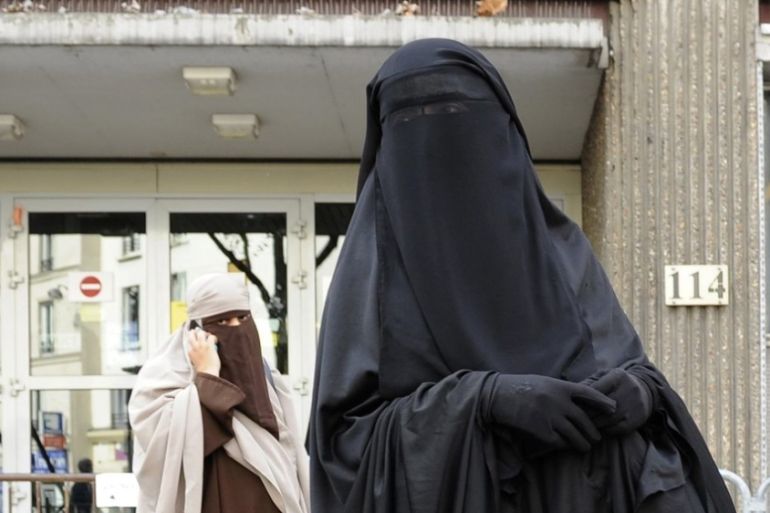Dutch parliament approves partial face veil ban
Law – pending senate’s approval – outlaws face veils, ski masks and helmets in some public places, but not the streets.

The Dutch parliament has overwhelmingly voted to ban face veils in some public places, a law the government said was essential for security, but which opponents said pandered to anti-Muslim sentiment.
The law, passed by the lower house but still requiring the senate’s approval, bans veils and other items that hide the face such as ski masks and helmets in places including government buildings, public transport, schools and hospitals.
Keep reading
list of 4 itemsMuslim pupil loses UK court bid over Michaela school prayer rituals ban
Photos: Sikhs celebrate harvest festival of Baisakhi, marking new year
Masses gather for Eid celebrations in India
The motion “to ban all clothing which completely covers the face” from government buildings was approved by 132 members in the 150-seat house, including Prime Minister Mark Rutte’s ruling Liberal-Labour coalition.
Violating the Dutch law would incur a fine of €405 ($430).
It does not ban wearing full-face coverings on the street, which has long been a demand of Geert Wilders’ anti-Islam opposition Freedom Party (PVV), which is leading in polls ahead of elections in March.
READ MORE: German minister proposes partial burqa ban
His election campaign appears to have been given a boost thanks to the publicity from his trial on charges of hate speech in a Dutch court over comments he made about Moroccans living in the country.
|
|
“How do we even know there’s a woman under this Islamic textile?” said PVV lawmaker Machiel de Graaf.
“It might as well be a well-trained jihadist who completed his training in Raqqa of course,” he said in a parliamentary debate last week.
Few women in the Netherlands wear face veils. NOS, the state broadcaster, said between 100 to 500 women in The Netherlands wear the covering, most of them occasionally.
Divided opinion in Europe
Full and partial face veils divide opinion in Europe. France and Belgium have completely banned wearing veils in public and some other European countries have local or regional restrictions.
“Everyone has the right to dress as he or she wishes,” the government said in a statement announcing the law.
“That freedom is limited only where it is essential for people to see each other, for example to ensure good service or security.”
The Dutch cabinet had approved the plan in mid-2015, but decided not to go as far as banning wearing veils on the street.
MP Tunahan Kuzu, who vehemently fought against the draft legislation, said freedom of expression allowed people “to be who they are and dress how they want”.
“It is reprehensible to exclude these women and isolate them because of a subject anxiety among certain citizens,” Kuzu said.
|
|